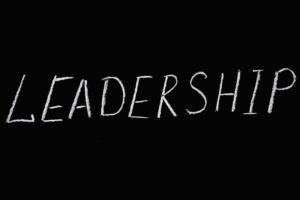CBSE Class 10 NCERT Maths: Tips to increase the score

In the board examination, students preferably prepare every subject beforehand. When it comes to the preparation for maths, some students start their preparation very hard with no interest just because they need to. On the other hand, Some students start their preparation with fear of failing. The reasons are many. Firstly, it is not a subject where you can write something to fill up the answer paper. Secondly, it needs analytical skills to solve the problems. So, this article tells you how to kickstart your preparation for the maths final board examination.
Preparation tips for increasing the score
- Know the one-shot topics: In any subject, there will be topics with heavy weightage. Those are one-shot topics. If students are good at these topics, then half of their exam preparation is done.
- Do not ignore NCERT: NCERT Class 10 maths textbook has 15 chapters detailing each concept with examples and practice problems. The 15 chapters are categorised under 7 units as follows,
Unit-1: Number system
- Real numbers
In this unit, students mainly learn about the basic theorem of arithmetic, rational numbers i.e. both recurring and non-recurring.
Unit-2: Algebra
- Polynomials
- Pair of Linear Equations in Two Variables
- Quadratic Equations
- Arithmetic Progressions
In the second unit, students learn different concepts of algebra in 4 chapters. The first chapter is about zeros of polynomials and the relationship between zeroes & quadratic polynomials. The second chapter is about the representation of linear equations in both graphical and algebraic methods. The third chapter is regarding quadratic expressions. The fourth chapter is about arithmetic progressions.
Unit- 3: Trigonometry
- Introduction to Trigonometry
- Heights and Distances
From this unit, students learn about trigonometric ratios and their values with proofs. They also learn applications of various trigonometric identities with their proofs.
Unit- 4: Coordinate geometry
- Lines
In this chapter, students mainly learn the concepts of coordinate geometry with important formulas. And also, about the graphical representation.
Unit- 5: Geometry
- Triangles
- Circles
- Constructions
Through this chapter, students can know about three different geometrical figures. Especially in the chapter on triangles, students learn different properties of similar triangles and problems with them.
Unit- 6: Mensuration
- Circles
- Surface Areas and Volumes
In this chapter, students understand the area of circles, segments, sectors, the circumference of the circles, and so on. Students also come to know about the formulas used for the calculation of surface areas and volumes of different figures like a parallelogram, pyramid, and so on.
Unit- 7: Statistics and probability
- Statistics
- Probability
Through the practice of this chapter, students will get an understanding of the mean, median, mode of grouped data. They can also learn about probability and simple problems.
- Since NCERT books strictly abide by the CBSE syllabus, students, without doubt, can rely on NCERT textbooks for their preparation. Most importantly, Class 10 Maths NCERT Book in Hindi and Urdu mediums are also there. So, students without any language hurdles can focus on preparation for the exam completely.
- Pay attention to sample papers and old question papers: Sample paper solving is a very crucial part of the preparation for the maths exams. Through sample papers, students can understand the pattern of the question paper in a much better way. It also helps in managing the time. With the previous years’ question papers, students can analyse the importance of each topic on their own. With this analysis, students can expect the questions from which chapter, in which section, and so on. Students can know the areas of improvement, a clear picture of strong and weak topics, sections taking a long time in answering, and so forth. All these are the other perks of practising the sample papers and previous years’ question papers.
- Solve the problems in the step-step process: Generally, students start their preparation with great spirit. But they give up on that as soon as they come across a tough problem. So, whenever there is any difficult problem, start working on it in a step-step process. While solving the problem, understand each step properly. In that way, students never find it difficult. This technique can also be used while writing the exam too. If a student doesn’t solve the problem completely, he will be awarded marks for solving some of the steps. So, it can help increase the marks.
- Concentrate on the formulas: Since it is maths, there will be a lot of formulas. To memorize them easily, write down all the formulas in class 10 maths in one book. Every day I spend some time learning formulas. This formula book can also be useful during revising. This saves the time of flipping the pages to find the formulas.
- Give importance to examples and exercises: It is highly suggested to practice the examples and exercises at the end of every chapter in the NCERT textbook. Every year, students can find some questions appearing from that section in the final exam. That is why give importance to them.
- Practice graphs and figures: Graphs and figures are the areas where students can grab more marks. Instead of solving a very big problem, students can draw graphs and figures to easily score the marks. Thus, it is important to practice drawing the graphs and figures neatly.
Additional books to practice:
Though NCERT books are good enough, students can improve only their fundamentals. Hence, it is necessary to refer to some of the additional books for preparation. Here are some of the books that students are worth practising.
- “Mathematics for class 10” by RD Sharma
- “Secondary School Mathematics” class 10 by RS Agarwal
- “All in one maths” by Arihant publications
Conclusion: Maths is one of the best scoring subjects in class 10. Students can use maths as a subject to boost their scores as it is the subject where students can get 100/100 easily. All they need is a little commitment, consistent practice, and patience. Some students even after a lot of preparation get nervous about how they do in the exam. It must be seriously avoided to give your best in the exam. With all the above preparation tips, students can surely perform better in their maths exams.






